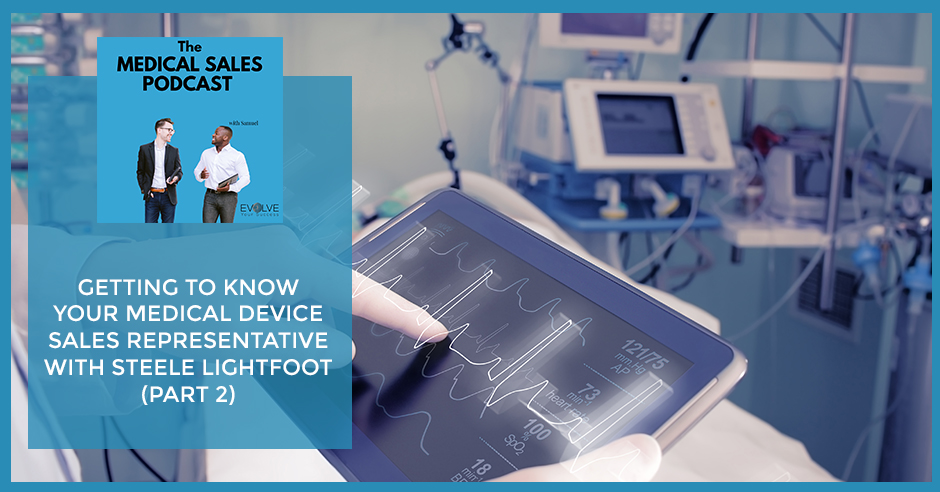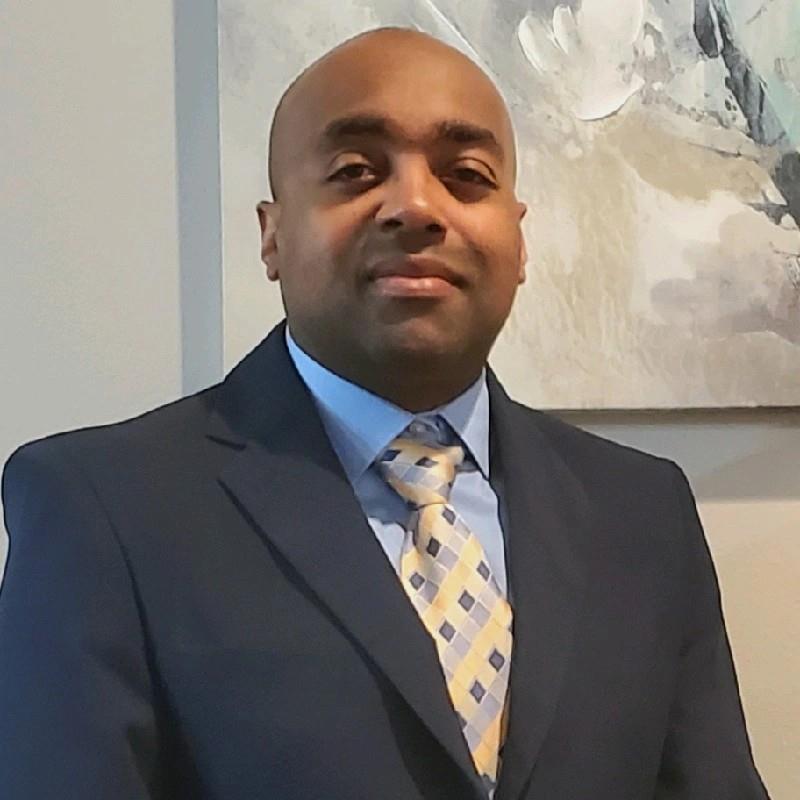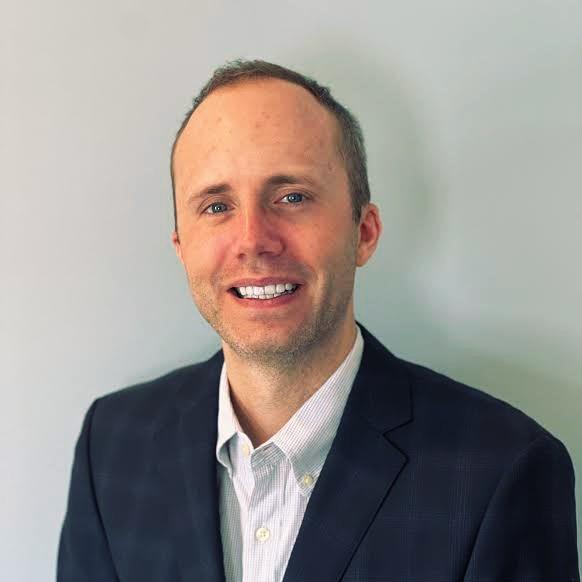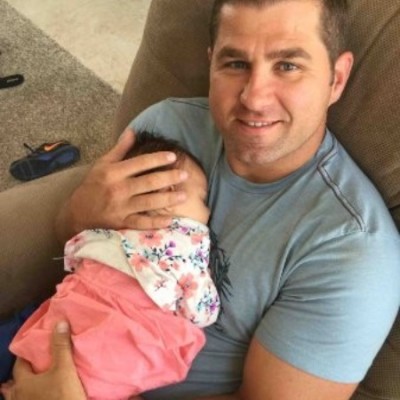
Medical device sales is a unique field where a lot of sales calls are not in the clinic. The reps usually catch the doctors in their surgical space or office-based lab. A continuation of the previous episode, Steele Lightfoot and Samuel Gbadebo go deep into Steele’s background and go through a list of important things people need to remember in this type of role. Steele also talks about the difference between the W2 and the 1099 sales rep, a question that Samuel often gets asked. If you’re someone that’s in position to make a decision about it, this is a wonderful episode.
—
Watch the episode here
Listen to the podcast here
Getting To Know Your Medical Device Sales Representative With Steele Lightfoot (Part 2)
We’re returning for the rest of the interview with Steele and he’s going to get into the differences between a 1099 sales rep and a W-2. There are some pretty big differences. I love that he goes into it because some of you out there have asked me questions, “Should I take on a 1099 role to show that am I competent enough to do a W-2 role? If a major company is offering a 1099 role, should I take it?” Steele is going to do his best to shed some light on how to take in and understand what it means to be 1099 or W-2 as a sales rep. He also touches on more of his background and what he experienced in the field and what his conclusions were on how anyone that gets the opportunity to take a position in this space should see things. Thanks again for joining us and I hope you enjoy the rest of this interview.
—
I want to take it back to your experience. People need to know where did you get all this experience and how long have you been in the industry?
I’ve been in sales for many years. I’ve been in the medical industry, if you include my experience in the hospital, for many years. I started early in college. I was an orderly in the operating room. My dad’s a surgeon, my uncles are surgeons. I’m spoiled when it comes to being a doctor’s kid when it comes to recognition in the operating room. I’ve worked for everything in my life from an early age. I’m fortunate about the ethic he instilled in me when he didn’t have to, but as a doctor’s kid in the operating room, you’re known like, “You are doctor’s son.” I’m like. “I have to live up to their standards.” I’m fortunate for that in my life because it allowed me some positions and some things to do that maybe I wouldn’t have gotten otherwise, but early into that job as an orderly, cleaning rooms and restocking items, I was afforded the ability to learn to be the first assist.
A first assist is a person that helps the surgeon retracting. What they call retracting is helping hold wounds open, holding sutures and grabbing instruments on a basic level. It’s helping the room and the surgery actually move forward. You’re scrubbed in to the procedure, your hands are on patient and you’re helping the physician and the staff. I did that in college way back in 2007 and learned the OR quickly. I was working a lot. I also got to see medical device reps for the first time when I started doing more orthopedics than any other specialty. Towards the end of my college life, I very much learned that college was not for me. I did not want to continue to be in higher learning any more than I knew to be.
As I tried to transition out of my college life into an actual big boy job, I was lost and didn’t know what to do. My girlfriend at the time, who is now my wife and I sat down and had some real heart-to-heart discussions about what is it that I want to do and what do I like doing? Ultimately, she and I both fell back on this job that I had in college in the operating room. One thing led to another and it’s like, “There are medical device sales and that’d be a cool job. The more research you do like the data you see and put out, it’s a lucrative business. It can be fun and interesting. I don’t need anything, but a college degree for the most part and the willingness to move anywhere in the country.”
It’s 2009 and we’re in the middle of the worst economic downturn we’ve had in a long time. The statistics on my graduating class, 8% were employed and 3% were employed in their field of study. It was rough getting a job coming out. It wasn’t something that you did want to do at all. I was fortunate to meet some people in college to get some interviews at some medical supply companies. Some of the bigger ones are big chains across the world. I tried interviewing some of those places and none of them panned out and I found this medical device job in Houston, Texas. I drove out there and my little beat-up car and did an interview for a low-level entry orthopedic rep job.
He likes the interview and said, “Why don’t you come back in a week?” I was like, “I got a trunk back out here again in seven days.” This when I graduated but was working as a veterinary tech in my hometown. I found a way to get back out there. I convinced him that he needed to give me the job. It was the best break that I’ve gotten short of marrying my wife. It was an orthopedic job in Houston, Texas, and that’s another piece of advice I’ll give somebody who’s in this industry or wants to be in this industry is if you’re not willing to relocate for your first job, you might be getting a lot of noes, for that simple reason. I get it. I like where I live, which is my hometown essentially.
My family is here and my kids have their cousins, aunts and uncles. I get that. If you’re not at least willing to show that you’re willing to do what you need to do for your career, people might look at that and read between the lines. Once I got the job, I’ve jumped at it. I didn’t have kids. I wasn’t completely married at that time. We were engaged, but got in the car, packed my stuff up and left. I completely devoted myself to learning every single thing I could for as long as I could so I can get a full territory. I was extremely fortunate. Houston, Texas is the medical capital of the world. In most respects, it has the largest per capita medical community in the world, for sure.
There are about 400 plus medical facilities, hospitals, surgery centers in the Houston Metro area. Houston has 4.5 million people population size. It’s bigger than the State of Alabama. It’s a lot of people, but it affords you the opportunity to learn in the best environment that you could as a new rep. I remember three days into my job, not knowing where I was or what I was doing. My boss going, “Take these things here and we’ll see you later.” It was a sink or swim moment. I was thinking for a long time, and this is all I learned is to at least float with my big old belly and then, I eventually learned to swim. I did that for a little while.

That was with which company?
It was with a distributor of Acumed. They’re an orthopedic trauma, a niche company.
Your first position was in the 1099 role.
As a matter of fact, I was 1099 up until July of 2019. I spent the majority of my career as 1099.
Can you break it down a little bit for our audience, for those that might not know what the difference is between a 1099 and a W-2 rep?
Depending on where you are in the country and what state you’re in, it can mean a lot of things, but 1099, you’re not an employee of the company. There are certain things that those people who hire you don’t have to provide like taxes or benefits or anything like that. You are a contract worker. There’s a lot of things that come with that, that is good and/or bad. You are a contracted worker to sell a certain thing for somebody who owns the right to a certain area. My boss had the right to sell Acumed trauma products to Houston and the South Texas Market. I was hired as one of his contract workers to sell those items.
In some of the 1099 and W-2, something that people need to think about and understand that 1099 model which usually infers that there is a distributor of some form who is your boss who has multiple people like you and your level, and maybe some managers above you. It’s a much more common thing than W-2. W-2 employees are usually based salary plus commission employees. They have benefits. Usually health benefits or some type of fun stuff like a company car or a company credit card. The health benefit is the big thing. You’re getting your retirement normally paid for and health benefits paid for in some form or fashion and your taxes or at least their half of it.
As a 1099 rep, I didn’t learn any of this the easy way. I got the job offer and I said, “Yes, please. I’ll be here tomorrow. Don’t give it to somebody else who’s prettier than me.” You have to pay all of your taxes as a 1099 representative. You rarely will have medical benefits and expenses paid for. It’s all very determinative. In my position, when I started out early on, I had small benefits and some of my gas was paid for. I had some health benefits, but it was not full health insurance, but when it comes to taxes, you have to be prepared to take out whatever you determine is the right percentage. I always took out 30%. That’s the highest tax bracket that I would ever be in in my entire career.
I knew if I took out 30% of my income right away and never touched it, that when the IRS came knocking, I had it. You have to do some education, do your homework and read into specifically what your employer providing and more importantly, what they’re not providing. That’s a funny word that you use employer because you’re not an employee. You’re not supposed to be. You need to learn to do taxes and to find your own private health insurance and what that means for you. Depending on where you are in your life and whatever phase you’re in, it can mean yes or no to a job.
[bctt tweet=”People are very different, and sales allows people to win in different ways.” username=””]
You were a 1099 rep for a while and when you describe it, the question becomes, why was he a 1099 rep for so long?
It’s simple and this happened in my interview process. I tell the story all the time. At one point, in our conversation, my dad was a surgeon, but I was raised with my mom and my stepdad. My stepdad was a lawyer before he passed. I was extremely fortunate in life. I thank God for that every day. I didn’t want for very much, but I was also instilled early that I had to work for anything that I wanted. I had a job from the age of twelve, but it came up in the interview process. I had my boss look at me and say, “Why should I hire you, expect you to do anything and to work hard?”
I stood up and walked to the window that was in his office. I pointed to the parking garage down below, “You could see my 1992 Camry that was still smoking from how I have driven it 600 miles. That’s why.” In that conversation, he was clear and was like, “You understand this is a 1099 position.” He explained it a little bit. I said, “You’re telling me I can make as much money as I want to as long as I work hard?” He’s like, “Yeah.” I was like, “Sign me up.” In that phase of my life, I didn’t have my wife yet. She didn’t move out there with me. I didn’t have children. I didn’t have friends where I was in Houston, Texas and I had work.
You are at minimal risk with all the ability in the world.
It’s me in a 400 square-foot apartment. That’s it. I didn’t need anything but frozen pizzas for 1.5-year. It was a phenomenal way for me to cut my teeth. It proves my work ethic and what I told these people I had. It showed them ultimately, because about seven months into my job, I got promoted to a full territory rep, that I was willing to work as hard as I could to make as much money as I could. Things have changed in the many years since I did that. The “standard of living” and the demands that people are putting on employers has changed a lot from then to now.
I was told I can make as much money as I wanted to. I was told I was getting a job. The norm is 1099 in orthopedic device and more so than not. A distributor type role is more common than not. Depending on where you are in the country, some States are pushing that you have to have W-2 and not 1099 for a lot of various reasons. It is harder to find a job as a W-2 in orthopedics that’s not like total joints or something that’s a little bit harder to get as an entry-level job.
Some of the non-entry level jobs as you continue to build experience, you can find those. There are some companies like Johnson & Johnson and Smith & Nephew are our two big ones that you can get a W-2 job. It’s a scaled down version. You’re getting some benefits, some salary, but your expectations are different. Your ceilings are much lower. You have to do a pros and cons list and accept what you want to accept and then go for it.
It sounds like you’re saying that in 1099, you can make more and you have more options as far as career options. Did it start out that way as opposed to starting out with a W-2 position?
Pretty much, yeah. You’re stealing as 1099 is usually higher because you’re not getting benefits that somebody else was getting. You’re also going to see more opportunities at 1099 because this is a cheaper model for a corporation to have than it is for them to bring on employees. If they’re not paying for somebody as healthcare, retirement, salary, and car, then some people say, “Why would I? I can contract people out and it’s easy to hire, easy to fire, and cheaper.” You usually have to make up for it and tell the contract employer, “We’ll give you a higher percentage and we will make sure you have what we call on-cap commission.” W-2 employers can go, “No, I’m going to cap your commission because I’m giving you benefits. I’ve given you $50,000 of unseen income that allows you to do what you need to do.”

It’s easier to find 1099 jobs. In theory, you can make more money. You will see W-2 people making more money than 1099, but that usually means that 1099 rep is not as good as the W-2 rep. In this industry specific, you don’t see this in the vascular space that I’m in now. It’s all big corporation companies and their divisions. It’s a lot different, but in the orthopedic space, which is the main driver and medical device, in my opinion, it’s common.
I want to shift gears here a little bit and talk about leadership. Tell us a little bit about your leadership experience.
I’ve always tried to be in that type of role. I enjoy having the chance to lead somebody and to change somebody’s trajectory and their life whether it’s on the sports field or arena or in the military or even in the jobs I’m in now. Early in my career, at some point, I had interactions with people that I had to be responsible. Not until about the midpoint in my career that I have a true team, people that for the most part, reported to me and I had direction on whether they were there or not and what they did. It was an eye-opening experience because those first couple of years where I was a territory manager and a true team lead territory manager was interesting, especially when I went through my first hiring and firing processes that I at least had a say in.
I was working for a distributor who had the ultimate say, but he would defer me because that was my territory. Ultimately, that person was working with me and it was my opinion that mattered most. It opened my eyes into leadership roles and how difficult they are. Especially nowadays, people are different and sales allow for people to win in different ways. You have to acknowledge that. There’s no one coverall, one sales strategy that’s going to cover every single individual. My wife has been good about enlightening me on personality traits of different people and how they think, you come and you’ll do these aptitude tests and these personality tests that are common in hiring processes nowadays.
It allows you to see how people work, but more importantly, it allows you to see how you’re supposed to lead them and how to manage them. I had some bad experiences with younger generations early on and I would try to impose my will, “This is how I did it. I’m a part of the OG Group. You don’t even know how we had it back in our day, our pagers and payphones.” I’m not that much older than them, but that’s how quickly the industry accelerates forward. I’ve learned quickly, you can’t take that approach and you have to take every single individual as they are and see how you can lead that person successfully. It’s how you mold a team of individuals around you that will determine whether you’re super successful or average.
You got to have somebody that picks up in the places where you let down and if there’s anybody that thinks they have it all, and they can do everything and every single facet, then they’re lying to you. They’re not being humble about it. They’re not going to survive very long. You have to accept that you have weaknesses in certain areas and certain things. One big example is I’m not an overly pushy rep. I’m not super aggressive. I’m much more of a builder. I’ve learned to be much more of a challenger in my days. There was a phenomenal selling series in a book called The Challenger Sale that I make everybody read.
It blew my mind that as a relationship builder, which is what I would peg myself as, “I was not going to be the most successful rep.” It blew my sales career wide open. I learned quickly that there are some scenarios where you need the pushy guy to get across the line because that positions need and that’s how they respond. As a leader, I’ve learned in bad ways that I need to be much more patient and diligent about understanding the individual and how they fit into the team as a whole versus what I think everybody should do and imposing the wheel like a dictator. In my opinion, it’s not going to be survivable in the long-term if you don’t do it.
You’ve covered Acumed and 1099 life with Arthrex and now Cordis, which is your W2 lifestyle. Say as much as you’re free to say, what do you see for your future? Where do you intend to take things and what would you like to take?
Cordis is a phenomenal company and I’m super blessed to have this opportunity. The cardiovascular space is something that I’ve wanted to get into for a long time. It’s ultra-competitive in a very different way from the orthopedic space. The majority of people in the sales side of this industry or the clinical side of it came out of a cath lab or have cardiovascular experience in some form or fashion. I’m the oddball out, although I’m much more common nowadays than in days past where people are using sales success to fill roles versus cardiovascular experience in the past. The ability that Cordis has afforded me and my family is unmeasurable. It was a decision that I had to make and for myself.

I love orthopedics. That’s something that will always have a place in my heart because I did it for so long. I have lifelong friendships and relationships with physicians, staff, nurses and people. The cardiovascular space has challenged me in such a different way and it’s refreshing to be a part of it. If you look at it from a business standpoint, I’m a W-2 employee now. I have health insurance that’s provided for me essentially, I have other accessories that are nice. I have a company car and have some of those benefits there. I’m salary plus commission. I’m taking home something for my family and my children regardless during COVID times is nice to know.
I have great friends that 1099 orthopedic reps who are taking out loans and trying to make ends meet because their bosses are getting hit with a lack of business. It’s the industry that it is. This industry is pretty recession-proof as a whole. People don’t stop getting sick, they don’t stop having heart attacks or breaking bones. They might not use your stuff to fix it and that’s where you could be in or out of a job. Cordis has been phenomenal for me and my career. My pace of life has changed dramatically. My industry in my specific discipline is not as high strong generally when it comes to my job. When you’re talking about heart attacks and trying to save limbs from being amputated, it’s all high stress.
You’re dealing with a vascular system that you can’t see until stuff goes wrong. It’s highly strong, but when it comes to my day to day, I’m much less attached to my pager and my cell phone than I’ve ever been. The point in my career where I was getting burnt out and it’s a common thing you see. Usually, a lot earlier in their career than when I made many plus years in and made the switch. In my opinion, I didn’t have the resume to feel valuable to a bachelor’s company until then. Once I felt like I could be an asset, then I went for it. Cordis has been a godsend in every way. I had managers and a company as a whole that care about us individually.
The stories that I can tell about Cardinal Health, Cordis, and the small family, we would be here for days, but it’s a great company that cares about their patients and employees. It’s not to say that my previous ones didn’t, but it allowed me for my phase of life to be happier and more content with where I am. I do what I love, which is helping patients and helping doctors treat their patients and have good outcomes.
On that note, I want to ask you, when you’re doing your job, what typically happens when you get to say to yourself like, “That’s awesome. I feel so good about what I’m doing.” Is it something you’ve heard from a surgeon? Is it something that you’ve heard from a colleague? Do you ever get to hear what patients say? What normally happens when you have that self-talk of you that’s proud of what you’re doing?
I wish I could tell people that it was a patient response. Patient interaction is little as it should be. In the spinal cord stimulator space, you get a little bit more interaction with patients because you’re talking to people.
They’re developing actual relationships with the patient forever.
You’re adjusting leads and things on patients, so they don’t feel pain or you are talking to them and touching to them. There are certain aspects of medical sales like bracing where you interact with patients. On the medical device side, it is rare that you have patient interactions. Sometimes you see it in recovery, depending on your products that you’re doing. Sometimes you see them in clinics when they come back for follow-up. In my career, when it’s not reaffirmation from my numbers which is tough sometimes to sit there and watch your number day-to-day. As an ultra-competitive person, I warn people against doing that. I do it now, but it can eat at you, especially when you’re having a down year or a super up year and then your year changes and quota doubles. It can be dangerous. You need to look at the big picture.
If it’s not that, if it’s not reaffirmation with hitting my quota or a target, it’s been the surgeons in my career. It’s always been in a setting where I have challenged the surgeon on what they’re doing in the middle of a procedure. They look at you and go, “That’s a good point. Thanks for telling me.” At the end of the case, they pat you on the back say, “Thank you for being here. That was a good move or a good call. I appreciate it.” My ultimate goal is to be able to look a surgeon in the eyes, have a conversation with him or her about what they’re doing and why they’re doing it, and know that they can view my response, my opinion, as well as they would a colleague.
[bctt tweet=”If there’s anybody that thinks they have it all and can do every single facet, then they’re lying to you.” username=””]
I’m a guy from Alabama who has a Zoology degree. Why should they care about my medical opinion? That’s where you build yourself up is, “I have years of experience. I know what I’m talking about.” If you do the right things and you do your homework, read every day, put your face in a journal, know your competitors better than they know you. If you do all of these things day-in and day-out, it will happen. The surgeon will look at you and view you as an asset. You also know easily if you aren’t wanted. If they don’t want you around, they don’t respond to you. They don’t talk to you. They don’t ask you.
I have surgeons that call me and asked my opinion about things. It’s humbling to know that these smart individuals are asking me my opinion on something because they value it. I’m learning to try to not get so much validation out of my career and try to focus on things that matter, like my family and my faith. My career has been all-consuming in my life that it is nice to have those moments where a surgeon says, “I appreciate that. It was needed and thank you for that.”
Please give us any last words to the audience that you feel everybody needs to read.
Set yourself apart in some way, don’t be average in any way and bring a notebook to the room where you go. Always have a notebook in your back pocket. I learned this from people that I look up to in my life. It says a lot about who you are as a rep and potential rep if you’re not willing to learn. You want to better yourself and be there for the patient. Have a notebook in your back pocket that you can write your notes in and what you’re learning every single day. I don’t care if you’re 1 year in or 20 years, it doesn’t matter. You’re always learning. It never stops.
If you’re not thinking about the patient first, you don’t need to be doing this job. I don’t care how much money you’re making. If you’re a millionaire and life is great for you, if you’re not thinking about the patient, then this isn’t the industry for you. This is our way of extending out and affecting patient’s lives without being physicians ourselves. This is how we do it. This is our little special way behind the table that is affecting patients. Keep the patient first, carry a notebook, try hard and see what happens.
Steele, it was awesome having you as a guest. Thanks again. I look forward to hearing more of what you do within your future.
Thanks. I appreciate it.
I’ll talk to you soon.
Take care.

—
We got the full understanding. We know we’re 1099 and W-2 fit. He spent a long time in the 1099 space. I loved how he said from his experience, that role gave him a lot of grit. It gave him a lot of that bare-bones attitude that I think anyone that wants to enter a medical device space needs to be familiar with and/or get familiar with. They’re up to the task if they step into that role. Steele did a great job of painting the picture of what life looks like. What I love towards the end of that interview is that he talks about how it does need to be all about the patient. At the end of the day, that is the focus. Your entire career is molded by how you can better improve this person who is the patient. Everything you can do from your role with the surgeon, staff, your understanding, and your devices, how can you best serve the patient?
That’s critical. That’s important. That should be top of mind with anyone going for a position. Top of mind with anyone that’s in the field, trying to make it work and top of mind with the leaders as well, to remind their teams what everyone’s doing everything for. It was an excellent episode. It’s nice to spend time with Steele. If you’re someone that wants to do what Steele is doing, you want to be in the OR, you want to help a surgeon be more efficient and provide that much more value to the patients and ensuring the procedure goes well, then you need a visit EvolveYourSuccess.com. You need to take our assessment. It’s an assessment that’s going to give you exactly where you are. It’s going to rank you on what you’re doing right and what you’re not doing right that can get you into a medical sales position.
I want to clear the air real quick about this medical sales position stuff. There are a few things that people assume will get you, that kind of career and that will automatically disqualify you. It’s much more than people realize, it’s not as restrictive as you’d might think, but some of the things that can increase your chances are if you’re someone with a degree, it’s going to help for the mere fact that there are so many people with degrees applying for these positions and by you not having one, it puts you at a disadvantage. Does it mean you’re not as good? No. Does it mean you’re not as smart? No. Does it mean you might even be a better representative and the other people? Sure. The reality of going against that number of people that all have degrees and you not having one, it’s something you need to understand and not count yourself out, but say, “What can I do to get in front of that so I can be seen at par with everyone interviewing?”
Do you have to have sales experience? Of course. Sales experience will help because the job is sales. Even though you’re going to understand all this technical stuff, all this anatomy stuff, know how to develop, cultivate and nourish relationships, you do have to know how to sell. The beautiful thing about selling is it can be taught, practiced and performed well. More so than you having a stellar sales background to get these positions, you got to be able to make the case and you can do it.
One more thing that I want to clear the air with when it comes to getting these positions, if you have any background, bring it to the table because it’s not about the background you currently have. It’s about how are you going to utilize the background you currently have, develop the skills you need, and communicate a story that makes sense to someone that wants to consider you based on everything you experienced. That’s what’s going to do it and that’s what we help you focus on. That’s what we put together and then send you off into the races so you can go and be number one and get your position.
If you’re someone who wants to increase your sales performance, again, you got to visit EvolveYourSuccess.com and select Improve Sales Performance. We have a tailored plan to the individual where we specifically focus on what you need help with for either 3 or 6 months or sooner enroll in a year-long program. For 3 or 6 months, we track your behaviors, identify what periods need to be, and get you to an ultimate goal. We decide exactly what that looks like before we get started. It’s very specific, tailored and it works.
Thank you all, for reading this blog. We always do our best to bring you guests that will give you insight into the industry, into the nuances of the industry, the different fields within the industry, how to survive, thrive, lead and how to even get out of the industry into something even bigger, better, and could be providing even more value. We want you all to learn it here and that’s why we do what we do. We want you all to see us as your resource to improving whatever it is you want to improve within the medical sales space.
When I say medical sales space, I’m talking about the all-encompassing healthcare manufacturers, pharmaceutical manufacturers, medical device manufacturers, genetic testing manufacturers. If you’re anywhere in that space, if you have anything do with something in that space, and you know you need something, we are a great resource, whether it be people, services, train, development, and strategy that you need, this is where you come to. Thank you again for reading this blog and make sure you tune in for another amazing episode.
Important Links:
Love the show? Subscribe, rate, review, and share!
Join the Medical Sales Podcast Community today:



























































































